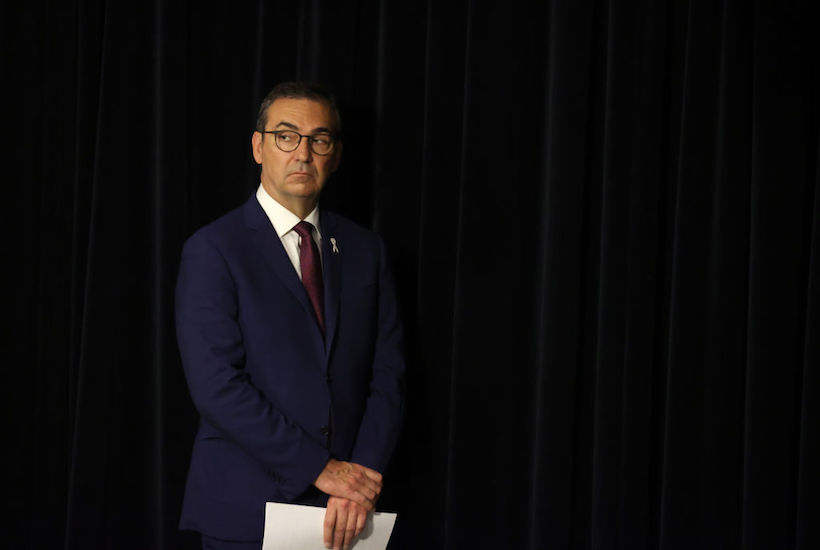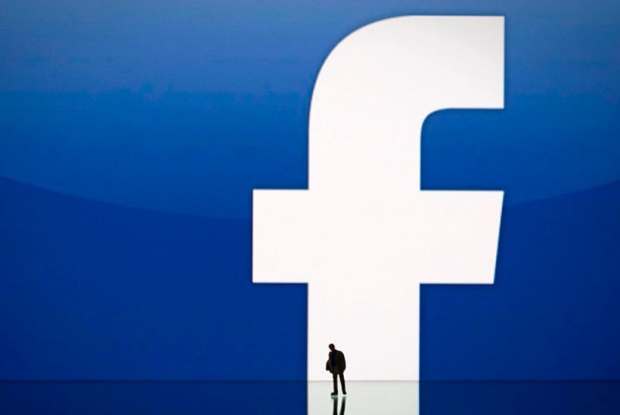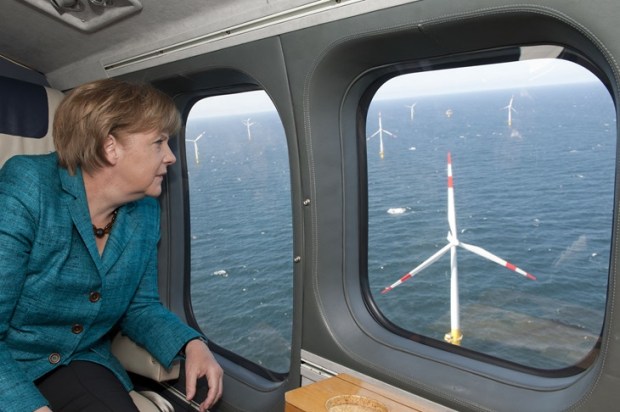Last week, I received a message from two friends on one day. They had tried to join the Liberal Party of South Australia, but their membership had been denied. They were asked to fill out a statutory declaration if they wished to reapply, confirming their intent to abide by a range of party rules.
“That’s odd,” I replied, “I don’t recall being asked to provide a ‘stat dec’ when I joined three months ago, maybe I just forgot.”
But I hadn’t forgotten; the rules had been changed. A report in the Adelaide Advertiser confirmed that the Liberal Party had received a flood of memberships over several months, due to what it described as a membership drive led by Senator Alex Antic working through a network of Pentecostal churches, attempting to shore up the ‘conservative wing’ of the party.
The fact that I had two friends who were also joining (and I hadn’t known they were until they texted me) indicates that there is some truth to the story. Neither I nor these two friends are Pentecostal, however.
The response of the party executive is, in a sense, understandable. They are concerned about branch stacking. They are concerned that people are joining who don’t want to support the party, but rather to change it. I’m sure that’s what they said to one another at their meeting.
Their response is also, however, very problematic. This is a major party. There are only two that citizens can join if they wish to be involved. As one commentator pointed out – where else can Christian conservatives go? I would add, what are you saying to all the conservatives who are already members, who have been fighting for conservatism for years? This response is not fighting fair—the so-called moderates are obliged to argue their case, win their pre-selections, and have their own membership drives if they wish the party to be progressive.
Party politics and lack of engagement are already compromising the effectiveness of Australia’s democracy. Yet the state executive showed that they would rather a dysfunctional democracy than have to negotiate with conservatives. This move was anti-democratic and showed that the moderates of the party covet their current influence in the state.
There are at least three important bits of context to understand what is happening, which have not all been covered by reporting.
The first is that the Liberal Party is very vulnerable to this sort of thing only because it has ridiculously low membership. Membership of political parties is not common these days. A bit like joining the Lions Club or Rotary, it’s just not part of our culture anymore. We’re a country of consumers, not producers, and this applies to politics also.
I was part of this statistic. I almost joined ten years ago. I was about to join when the federal election was lost by both parties. I then watched as three independents held the entire country to ransom for their specific demands. The wheeling, the dealing and the rhetoric (from all sides, as far as I could tell) was so repulsive, that I wanted nothing to do with the whole scene.
This was a flawed decision on my part. Unfortunately, bad politics inspires bad people to join politics. I’m sure that good politics can also inspire good people to join, though it’s a rarer sight. This means, however, that concentration, rather than dilution, is the natural flow of politics. Lack of political engagement from the disgruntled populace is equivalent to handing over your keys to the last person you want driving your car. We get what we deserve.
The second context is what Christian voters have been doing for the past few decades. South Australia had a relatively strong Family First branch, though it relied on major party preferences. After that, they had a relatively strong Australian Conservatives branch. During the Turnbull years, the Liberal party haemorrhaged members to the Aust Cons, but when Scot Morison came in, many of them returned. In the end, the vote for Australian Conservatives was inadequate and saw the end of the party. Their vote in SA was nevertheless double what any of the other states saw.
SA has a very real Christian and conservative voting block, lacking a home and lacking a spokesperson—someone to point to and say “I’m with them”. With the demise of the Aust Cons, many Christian voters in SA have been keeping an eye out for what is coming next, and many have learned something – minor parties are probably not the answer for us. Unlike some states, we don’t have any clear winner for a right-wing minor party, and it’s an uphill battle with the new preference rules. Also, Christians are usually somewhat centrist in their basic political orientation anyway. They aren’t entirely comfortable with nationalism, or libertarianism, so One Nation or Shooters, Fishers and Farmers make reluctant bedfellows. But more importantly, minor parties are impotent when the major parties aren’t split on the issues we care about, which brings me to…
The most vital piece of context happened four months ago. I’ve heard for years that the best political engagement is to join a major party. I’ve probably come closer than most to pulling that trigger. So what was it that pushed me, my two friends, and several hundred other South Australians, over the finish line?
In March, I joined five thousand people at a rally outside the state parliament, on North Terrace, to oppose abortion. Specifically, we opposed the new abortion bill that would permit abortion up to birth. One week later, the pro-abortion group had their rally. They got less than 500 people. We outnumbered them ten to one.
Adelaide is not that large of a city, and getting 5,000 people out is ‘heaps big’, as the locals would say– especially in the rain and during a pandemic. When those near the front of the line were getting back to the car park, those at the rear were still leaving the Parade Ground by the banks of the River Torrens, half a kilometre away. Of course, we didn’t just rally, we flooded our MPs with emails. I sent mine (you can read it here, if you like) to my representative, to the leaders of both parties, and to the Minister for Child Protection (who should resign her office for voting the bill through).
Yet the bill passed with scarcely an amendment.
Decades ago, it took extensive argument to ‘prove’ that embyos and foetus’ are not truly alive early in pregnancy and hence that it is ok to kill them. Today activists disguised as bureaucrats have tied this issue up with so much circumlocution that the majority of our leaders seriously couldn’t see the clear, undeniable immorality of killing a baby who is full-term. A baby who, in every practical way, is indistinguishable from one who has already been born.
Last year, after the 2020 abortion rally, I debriefed over lunch with several friends. They were surprised that one of the keynote speakers and main sponsors of the rally was a Labor representative, Claire Scriven MLC. When the bill passed they, and I, were shocked that our state had waited for the first Liberal government in 15 years before it had the numbers to revise our abortion laws. And it’s not just abortion, the whole raft of modern progressive soapbox issues are pouring through now that the Liberal party (the Liberal Party!) has opened the floodgate.
We had associated Labour with the Greens. The party of socialists and unionists was also the party of progressives, wasn’t it? Well, no. The die was not case in that mould. The political divide did not cut along that axis. And what did this mean for me as a voter?
There is nothing I could have done, on election day, to vote against abortion. Nothing. There is nothing I could have done to vote against the progressive agenda in general. Neither major party stood against it.
Hence, I joined the party. Because there I have a vote that might matter. And, if and when possible, I will use that vote to prevent abominations like the abortion bill from happening again.
I can happily sign the party’s new statutory declaration if they want me to. I’m a natural Liberal. I don’t like unions, I support free enterprise, and to my ears, Bill Shorten sounded like the worst thing since Gough Whitlam.
Yet morality is more important than economics. A car can have a diesel engine, petrol engine, solar panels or pedals and we can argue about which is fastest. That argument becomes irrelevant, however, compared to where the car goes. Even should the Liberal party put the best economy under the hood, it matters little if they drive through the gates of hell.
So it wasn’t really a membership drive that awakened the slumbering conservatives. The SA Liberal Party moderates need to know they did this to themselves.
Nick Kastelein is a Christian and a conservative who grew up and lives in Adelaide.
Got something to add? Join the discussion and comment below.
Get 10 issues for just $10
Subscribe to The Spectator Australia today for the next 10 magazine issues, plus full online access, for just $10.


























Comments
Don't miss out
Join the conversation with other Spectator Australia readers. Subscribe to leave a comment.
SUBSCRIBEAlready a subscriber? Log in